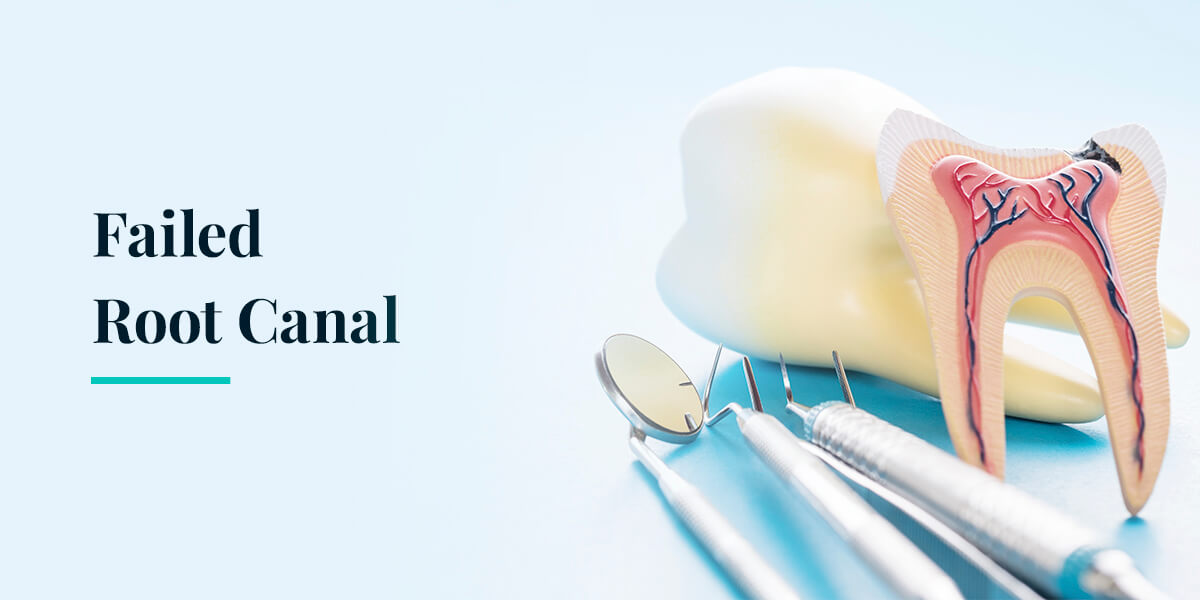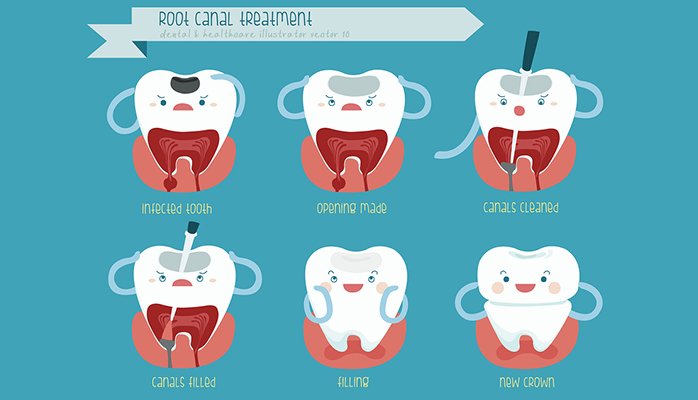Pain After a Root Canal: Causes and Remedies
Have you ever wondered why some people experience pain after a root canal? It’s a common concern among dental patients, but the truth is that there are various factors that can contribute to this discomfort.
Understanding the causes of post-root canal pain is essential for finding appropriate remedies and ensuring a smooth recovery. So, if you’ve recently undergone a root canal and are currently experiencing pain, don’t fret just yet.
In this discussion, we will delve into the possible causes of this pain and explore effective remedies that can provide you with the relief you seek.
Common Causes of Post-Root Canal Pain
If you’re experiencing pain after a root canal, there are several common causes that could be contributing to your discomfort.
One possible cause is inflammation around the treated tooth. This can occur due to the body’s natural response to the dental procedure. The inflammation can irritate the surrounding tissues and nerves, leading to pain.
Another common cause is infection. Although root canals are designed to remove the infection from the tooth, there’s still a possibility of residual bacteria remaining. If these bacteria multiply and cause reinfection, it can result in pain.
Additionally, a cracked or fractured tooth can also cause pain after a root canal. This can happen if the tooth is weakened during the procedure or if the crack wasn’t detected before the root canal was performed.
Finally, a high bite or improper alignment of the teeth can put excessive pressure on the treated tooth, leading to discomfort.
If you’re experiencing pain after a root canal, it’s important to consult your dentist to identify the specific cause and receive appropriate treatment.
Infection-Related Issues After a Root Canal
After a root canal, infection-related issues can arise that may contribute to pain and discomfort. It’s important to be aware of these potential problems and take the necessary steps to address them promptly. Here are three infection-related issues that you should be aware of:
– Infection at the root tip: Sometimes, despite the best efforts of your dentist, a small amount of bacteria can remain at the root tip after a root canal. This can lead to an infection, causing pain and swelling in the surrounding area.
– Abscess formation: In some cases, an abscess may form at the site of the root canal. An abscess is a pocket of pus that develops as a result of infection. This can cause severe pain, swelling, and even fever.
– Reinfection of the treated tooth: In rare cases, a previously treated tooth can become reinfected. This can occur if the filling or crown placed after the root canal becomes loose or damaged, allowing bacteria to enter the tooth again. If this happens, you may experience pain and sensitivity in the tooth.
If you experience any of these infection-related issues after a root canal, it’s important to contact your dentist as soon as possible. They’ll be able to evaluate the situation and provide appropriate treatment to alleviate your pain and discomfort.
Nerve Sensitivity and Inflammation
When dealing with infection-related issues after a root canal, it’s important to be aware of the potential problem of nerve sensitivity and inflammation. After a root canal procedure, it’s possible for the treated tooth to experience some level of sensitivity. This sensitivity can be caused by several factors, including the presence of inflammation in the surrounding tissues and the irritation of the nerve endings.
Inflammation occurs when the body’s immune response is triggered, resulting in redness, swelling, and pain. In the case of a root canal, inflammation can occur due to the presence of bacteria or debris in the root canal system. This inflammation can lead to increased nerve sensitivity, causing discomfort or pain in the treated tooth.
To manage nerve sensitivity and inflammation, your dentist may recommend over-the-counter pain relievers or prescribe stronger medications if necessary. They may also suggest applying a cold compress to the affected area to reduce inflammation and numb the nerves.
Additionally, practicing good oral hygiene, such as brushing and flossing regularly, can help prevent further infections and minimize the risk of nerve sensitivity and inflammation after a root canal.
Cracked or Damaged Tooth Complications
Cracked or damaged tooth complications can arise from various causes, such as trauma or weakened tooth structure. When a tooth is cracked or damaged, it can lead to several complications that may require further treatment. Here are three common complications that can occur:
– Infection: A crack or damage to the tooth can create an opening for bacteria to enter the tooth, leading to an infection. This can cause pain, swelling, and even abscess formation. Antibiotics or a root canal procedure may be necessary to treat the infection.
– Tooth sensitivity: Cracks or damage to the tooth can expose the sensitive inner layers of the tooth, causing increased sensitivity to hot or cold temperatures. This can make eating or drinking uncomfortable. Desensitizing toothpaste or dental bonding may help alleviate the sensitivity.
– Tooth loss: In severe cases, a cracked or damaged tooth may be beyond repair and may need to be extracted. This can lead to problems with chewing, speaking, and the overall appearance of your smile. Replacement options, such as dental implants or bridges, may be recommended to restore the function and aesthetics of your smile.
It is important to seek prompt dental care if you suspect a cracked or damaged tooth. Your dentist can evaluate the extent of the damage and recommend the appropriate treatment to prevent further complications.
Effective Remedies for Relieving Post-Root Canal Pain
If you’ve recently undergone a root canal procedure, you may be seeking effective remedies to relieve any post-root canal pain you may be experiencing. Fortunately, there are several options available to help alleviate your discomfort.
One of the most common remedies is over-the-counter pain medication such as ibuprofen or acetaminophen. These medications can help reduce inflammation and provide temporary relief from pain.
Another option is to apply a cold compress to the affected area. The cold temperature can help numb the area and reduce swelling.
Additionally, rinsing your mouth with warm saltwater can help soothe the pain. Mix half a teaspoon of salt in eight ounces of warm water and swish it around your mouth for about 30 seconds before spitting it out. This can help reduce inflammation and promote healing.
It’s also important to avoid chewing on the side of your mouth where the root canal was performed, as this can aggravate the pain.
Lastly, maintaining good oral hygiene by brushing and flossing regularly can help prevent any further complications and promote a faster recovery.
Frequently Asked Questions
Can I Eat Normally After a Root Canal?
You can definitely eat normally after a root canal. The procedure itself shouldn’t affect your ability to eat, so you can continue enjoying your favorite foods without any restrictions.
However, it’s important to wait until the anesthesia wears off completely before eating to avoid accidentally biting your tongue or cheek.
Additionally, it’s always a good idea to avoid hard or sticky foods that could potentially damage the treated tooth.
How Long Does Post-Root Canal Pain Typically Last?
Post-root canal pain typically lasts for a few days to a week.
It’s common to experience some discomfort and sensitivity in the treated tooth and surrounding area.
However, the severity and duration of the pain can vary from person to person.
To manage the pain, you can take over-the-counter pain medication as recommended by your dentist.
If the pain persists or worsens after a week, it’s important to contact your dentist for further evaluation.
Can a Root Canal Cause Additional Tooth Damage?
A root canal can cause additional tooth damage if not properly treated. It’s important to follow your dentist’s instructions for post-treatment care to minimize any potential risks.
Make sure to avoid biting or chewing on hard objects and maintain good oral hygiene.
If you experience any unusual symptoms or worsening pain, contact your dentist immediately for evaluation and further treatment.
Taking proactive measures can help prevent any further damage to your tooth after a root canal.
Is It Normal to Experience Sensitivity to Hot or Cold After a Root Canal?
Yes, it’s normal to experience some sensitivity after a root canal procedure. Your tooth may feel more sensitive to temperature changes for a few days or weeks. This sensitivity should gradually improve over time.
However, if the sensitivity persists or becomes severe, it’s important to contact your dentist for further evaluation and possible treatment.
What Can I Do to Prevent Post-Root Canal Pain From Returning?
To prevent post-root canal pain from returning, there are a few things you can do.
First, make sure to follow your dentist’s instructions for post-care, such as taking any prescribed medications or using recommended oral rinses.
Avoid chewing on hard or sticky foods that could irritate the treated tooth.
Also, practice good oral hygiene by brushing and flossing regularly.
If the pain persists or worsens, be sure to contact your dentist for further evaluation.
Conclusion
So, if you’re experiencing pain after a root canal, it’s important to understand the common causes.
Infection-related issues, nerve sensitivity, and complications from a cracked or damaged tooth can all contribute to post-root canal pain.

However, there are effective remedies available to relieve this discomfort.
Whether it’s over-the-counter pain medication, cold compresses, or prescribed antibiotics, discussing your symptoms with your dent additional hints ist can help determine the best course of action for you.
Don’t suffer in silence – seek relief and get back to enjoying a pain-free smile.
Was this helpful?

Welcome to my website! I am Levi Halpern, a dedicated and passionate professional Cosmetic Dentist with extensive experience in Orthodontic Innovations, Periodontal Care, and Pediatric Dental Care. I am thrilled to have the opportunity to share my knowledge and expertise with you.

